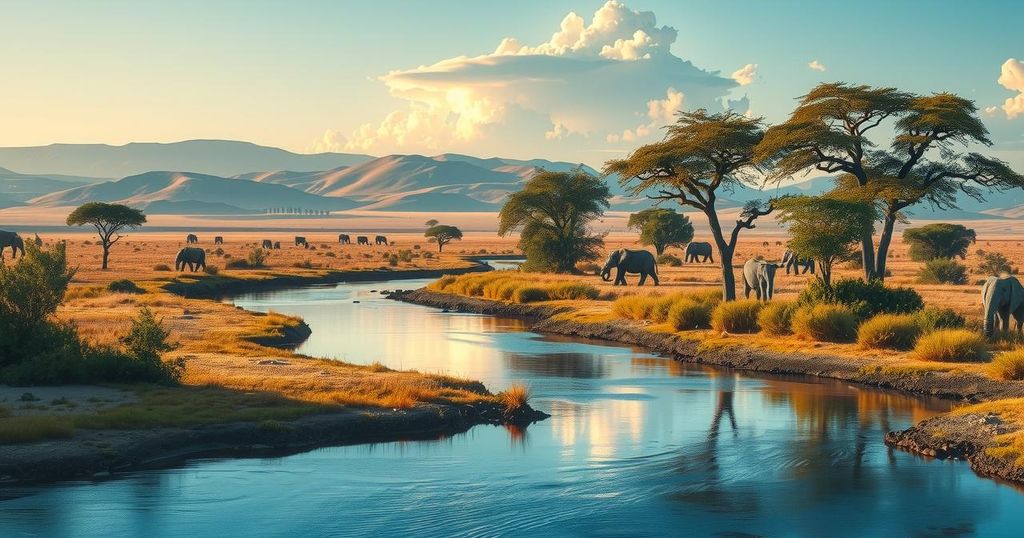Understanding the Drought Crisis in Southern Africa and Its Global Implications

Southern Africa is experiencing one of its worst droughts in over a century, affecting 61 million people, with 20 million in crisis. Namibia has declared a state of emergency, facing acute food insecurity and culling wild animals to help those in need. The crisis highlights the urgent necessity for global action against climate change, which underpins the increase in such catastrophic environmental events. Immediate collective action is imperative to avert future disasters.
Southern Africa is currently experiencing a severe drought, the worst in over a century. Approximately 61 million individuals are affected, with over 20 million classified as being in a critical state according to the IPC Phase 3 classification. This dire situation has prompted countries such as Botswana, Namibia, Lesotho, Malawi, Zambia, and Zimbabwe to declare a state of emergency.
Namibia faces particularly dire conditions, with nearly 40% of its population suffering from acute food insecurity. To mitigate the crisis, the government has sanctioned the culling of around 700 wild animals, including elephants, hippos, and elands, to provide sustenance for those in need. As of 2024, 84% of Namibia’s food reserves are reportedly depleted.
Historically, Namibia has faced repeated drought-related crises, declaring states of emergency multiple times in the past decade. Specifically, states of emergency were declared during 2013-2014, 2015-2016, and 2018-2019 due to drought conditions.
The underlying cause of this severe drought can be attributed to climate change, similarly affecting various environmental disasters worldwide. The frequency and intensity of such disasters have surged, with reported climate-related incidents increasing by 83% between 1980-1999 and 2000-2019, along with a doubling of major floods during this timeframe.
The ongoing challenges faced by regions such as Southern Africa highlight the urgent need for collective action against climate change. The impact of climate crises extends beyond affected areas, influencing global conditions that require immediate and substantial responses to prevent irreversible damage.
Individuals not directly experiencing these crises may question the necessity of taking action against climate change. However, it is evident that inaction could lead to catastrophic consequences, ultimately affecting everyone on the planet. Therefore, recognizing the importance of collective action and the urgency to act is paramount as time is running out.
In conclusion, the drought in Southern Africa serves as a stark reminder of the gravity of climate change and its widespread implications. It is essential for individuals and communities worldwide to mobilize efforts to mitigate climate impacts to foster a sustainable future for all. The consequences of inaction are dire, and immediate measures must be implemented to avert disaster for vulnerable populations around the globe.
In summary, the severe drought in Southern Africa represents a significant climate crisis impacting millions of lives. Historical patterns illustrate the frequency of drought-related emergencies, while evidence underscores the rising incidence of climate-related disasters globally. Acknowledging the shared responsibility in combating climate change is crucial, as inaction bears serious consequences for the entire planet. Collective efforts are necessary now more than ever to mitigate these dire impacts and preserve our environments for future generations.
Original Source: www.theteenmagazine.com







